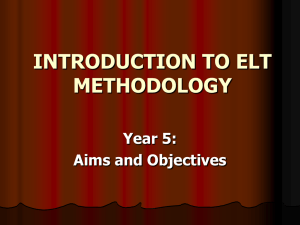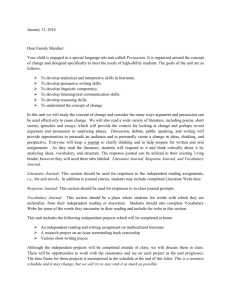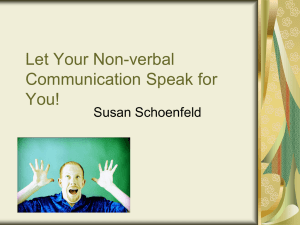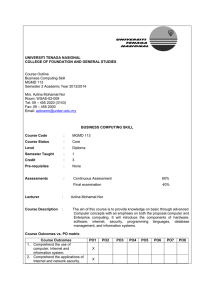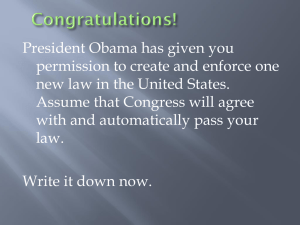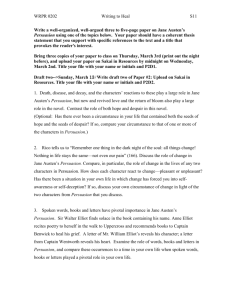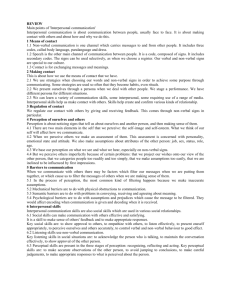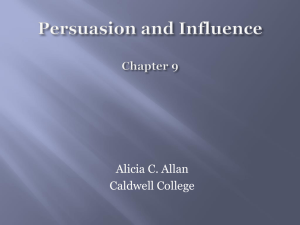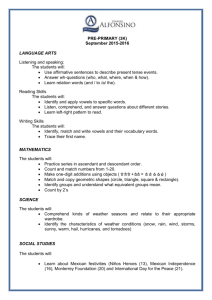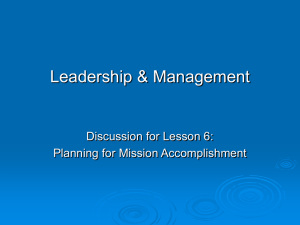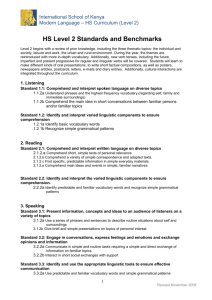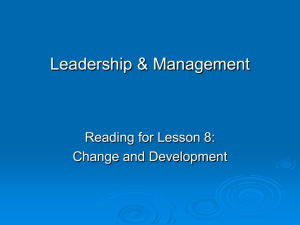human relations and communications in educational leadership
advertisement
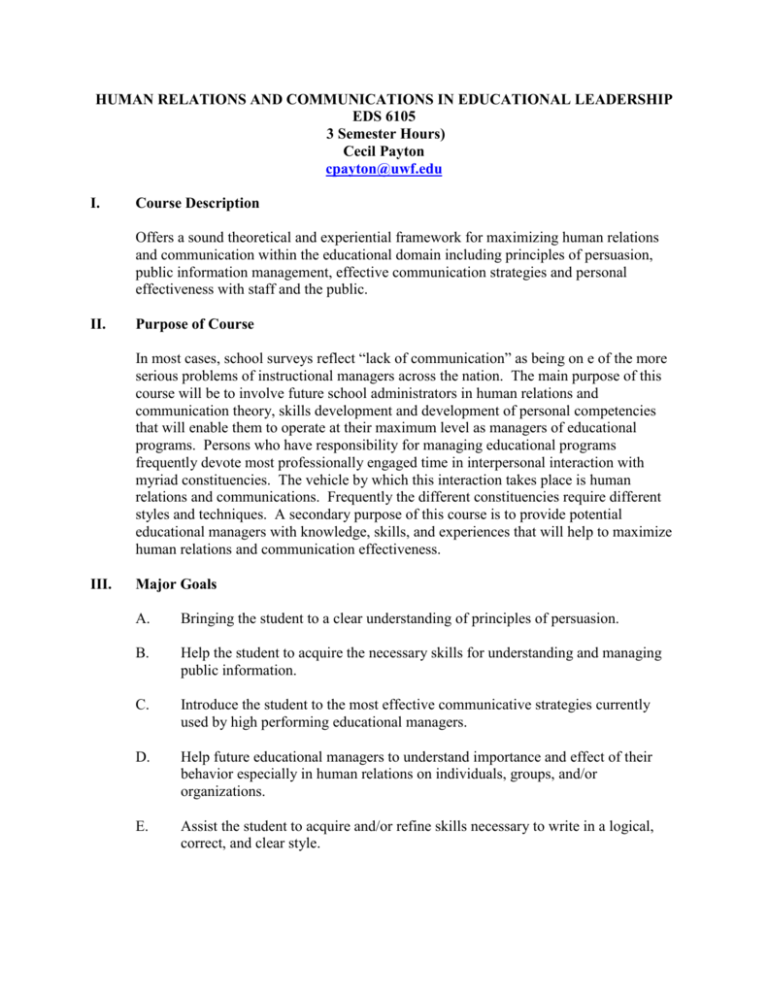
HUMAN RELATIONS AND COMMUNICATIONS IN EDUCATIONAL LEADERSHIP EDS 6105 3 Semester Hours) Cecil Payton cpayton@uwf.edu I. Course Description Offers a sound theoretical and experiential framework for maximizing human relations and communication within the educational domain including principles of persuasion, public information management, effective communication strategies and personal effectiveness with staff and the public. II. Purpose of Course In most cases, school surveys reflect “lack of communication” as being on e of the more serious problems of instructional managers across the nation. The main purpose of this course will be to involve future school administrators in human relations and communication theory, skills development and development of personal competencies that will enable them to operate at their maximum level as managers of educational programs. Persons who have responsibility for managing educational programs frequently devote most professionally engaged time in interpersonal interaction with myriad constituencies. The vehicle by which this interaction takes place is human relations and communications. Frequently the different constituencies require different styles and techniques. A secondary purpose of this course is to provide potential educational managers with knowledge, skills, and experiences that will help to maximize human relations and communication effectiveness. III. Major Goals A. Bringing the student to a clear understanding of principles of persuasion. B. Help the student to acquire the necessary skills for understanding and managing public information. C. Introduce the student to the most effective communicative strategies currently used by high performing educational managers. D. Help future educational managers to understand importance and effect of their behavior especially in human relations on individuals, groups, and/or organizations. E. Assist the student to acquire and/or refine skills necessary to write in a logical, correct, and clear style. IV. F. Give adequate experiences in a logical process of forming ideas and decisions based upon information from different sources. G. Help the student to discover, understand, and verbalize the concepts, thoughts and ideas of others. H. Help the future educational manager to effectively use technical, symbolic, nonverbal, visual, and graphic aids in presenting his or her own ideas or those of others. I. Assist the learner to acquire the human relation skills basic to successful leadership. Objectives Upon completion of this course the student should be able to: A. Identify the specific persuasive objectives for a given situation. B. Identify effective sources and channels of persuasion. C. Distinguish between situations requiring one-sided and those requiring alternative presentations. D. Understand relationship between emotional and logical components of persuasion. E. Demonstrate knowledge of information management at the school level (identification of public, maintaining, public disclosure and confidentiality). F. Select techniques to promote public awareness of school successes. G. Select techniques to control the flow of negative information. H. Tailor communication strategies to the audience and situation. I. Understand importance of the need to stimulate others to ask questions and raise related issues. J. Successfully apply appropriate human relations skills in the day to day management of assignments in the education field. K. Understand the elements of a complete set of communications and their relationships, i.e.: 1. Recognizing that immediate feedback from a message receiver is an efficient means of evaluating the impact of the message. 2. Understanding appropriate methods of providing feedback in the communication process. 3. Understanding interactive communication techniques that can facilitate effective communications. 4. Understanding the impact of voice tone and non-verbal behavior upon the communication process. L. Respond tactfully to others. M. Consider the feelings, information needs, and perspective of others. N. Demonstrate sensitivity to various audience responses. O. Differentiate between formal and informal written English, and demonstrate ability to use both forms. P. Use language at the level appropriate to the topic and reader. Q. Comprehend and apply basic mechanics of writing: spelling, capitalization, and punctuation. R. Comprehend and apply appropriate sentence structure. S. Comprehend and apply basic techniques for the organization of written material. T. Comprehend and apply standard English usage in written communication. U. Decode non-verbal communication and use it in an effective way. V. Understand responsible self-assertion, including its importance to leadership and the skills necessary for its effective use. W. Recognize symptoms of stress and have the skills necessary for its management. X. Recognize and work successfully with different personality types. V. Topics A. Personality Types B. Understanding of Self C. Interpersonal Skill Development D. Developing and Maintaining E. Communication Skills – Responding and Receiving F. Verbal and Non-Verbal Expression G. Responsible Assertion H. Communication and High Performance – The Information Age I. Application of Human Relations and Communications to Leadership and Management The goals and objectives for this course using the topics outlined above will be accomplished by: VI. VII. A. Lecture B. Discussion C. Projects and Problem Solving D. Field Work E. Reading, Observation, Interviewing and Research Course Requirements A. Project reports & Papers 70% B. Participation and Discussions 15% C. Subjective Evaluation by Instructor ` Text and Other Resources A. Reaching Out, David Johnson, Prentice Hall, 5th edition 15% B. Current Journals, i.e., Communication Education, Journalism Education, Phi Delta Kappa, N.A.S.S.P. Bulletin, Educational Leadership, and Others. C. Field Work and Interviews with On The Job Supervisor and Administrators. D. Other Appropriate Standard Library Resources
